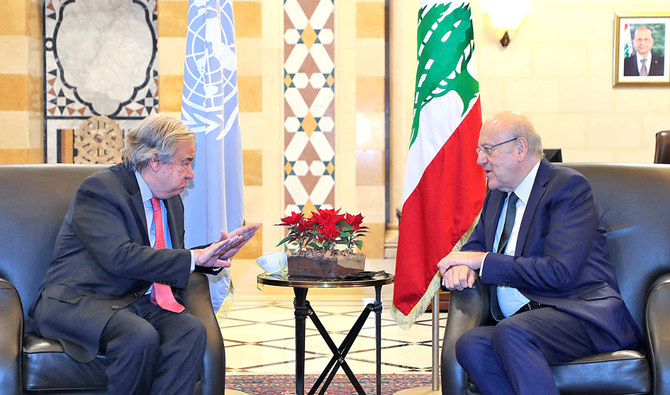The Lebanese Constitutional Council was unable to take a decision on Tuesday regarding the appeal submitted by President Michel Aoun’s team against the amendments introduced by Parliament to the electoral law, because it “failed to secure a majority of seven members,” according to spokesman Judge Tannous Meshleb.
The amended electoral law is thus effective, and the parliamentary elections shall be held in accordance with the law after it is published in the Official Gazette.
Meshleb denied “any political deal being proposed to the Constitutional Council in return for accepting the appeal.” Following the council meeting, he stressed: “The discussion was legal, and after seven sessions, we were unable to reach a unanimous decision. There was no sectarian division, but members had different opinions regarding expatriate voting. I regret not being able to reach a decision, but there wasn’t much else we could do. This is a failure on the Constitutional Council’s part. I don’t know if any of my colleagues interfered, but I don’t doubt anyone.”
Aoun and the Free Patriotic Movement (FPM) had objected to the amendments made to the electoral law in terms of changing the expatriate voting formula by canceling the six allocated seats and allowing expatriates to vote for the electoral lists, as well as canceling mega voting centers.
Baabda Palace sources described was happened in the Constitutional Council as a “fail,” accusing “certain forces of disrupting the judiciary, the Constitutional Council, the procedural authority and the criminal auditing.”
On Monday, the Lebanese heard rumors about a barter deal between Hezbollah, the FPM and Parliament Speaker Nabih Berri; the Constitutional Council would approve Aoun’s appeal in exchange for stopping Tarek Bitar, the judge leading the probe into the Beirut port explosion, from questioning the politicians he accused of being involved in the crime. The deal also includes making new judicial appointments and appointing a new Central Bank governor.
The FPM hoped the Constitutional Council would accept the appeal so expatriates would not be able to vote in all electoral districts. This is because about 225,000 expatriates will have a very big influence in districts considered essential to the FPM, especially since a good majority of expatriates who registered to vote from abroad in the upcoming parliamentary elections are Christians.
The rumored barter was then negotiated in the open and the political dispute over it happened before the eyes of UN Secretary-General Antonio Guterres during his official visit to Lebanon.
After meeting with Guterres on Monday afternoon, Prime Minister Najib Mikati met with Berri and left the meeting angry. “I have nothing to do with any of this,” Mikati commented, prompting many to assume he would soon resign, but his media office later ruled out such intentions.
A source close to Mikati noted that he does not accept interference in judicial or banking affairs and that his government refuses to be part of such a sin.
After meeting with Mikati on Tuesday, MP Mohammed Al-Hajjar, from the Future Bloc, told Arab News: “Mikati insists that institutions assume their role. He refuses to allow any institution to step on another’s toes. The issue of interfering with the judiciary is out of the question, and any type of deal is unacceptable.”
Al-Hajjar added: “The Future Movement stood with Mikati, despite our comments on Bitar’s performance. We did not demand that he be removed, but we said that the judiciary must stop violating the Constitution. If he had taken our suggestion to lift immunity for everyone, we would not have reached this point.”
Meanwhile, Guterres visited the UNIFIL headquarters in Naqoura on the southern Lebanese border where he toured the Blue Line with Maj. Gen. Stefano Del Col and discussed UNIFIL’s role there with senior international officers.
Guterres also held a closed meeting in Tyre with civil society representatives, amid tight security measures by the Lebanese army.

